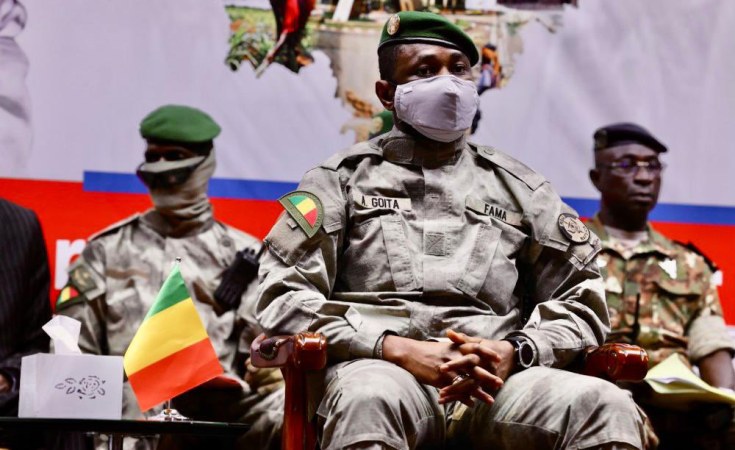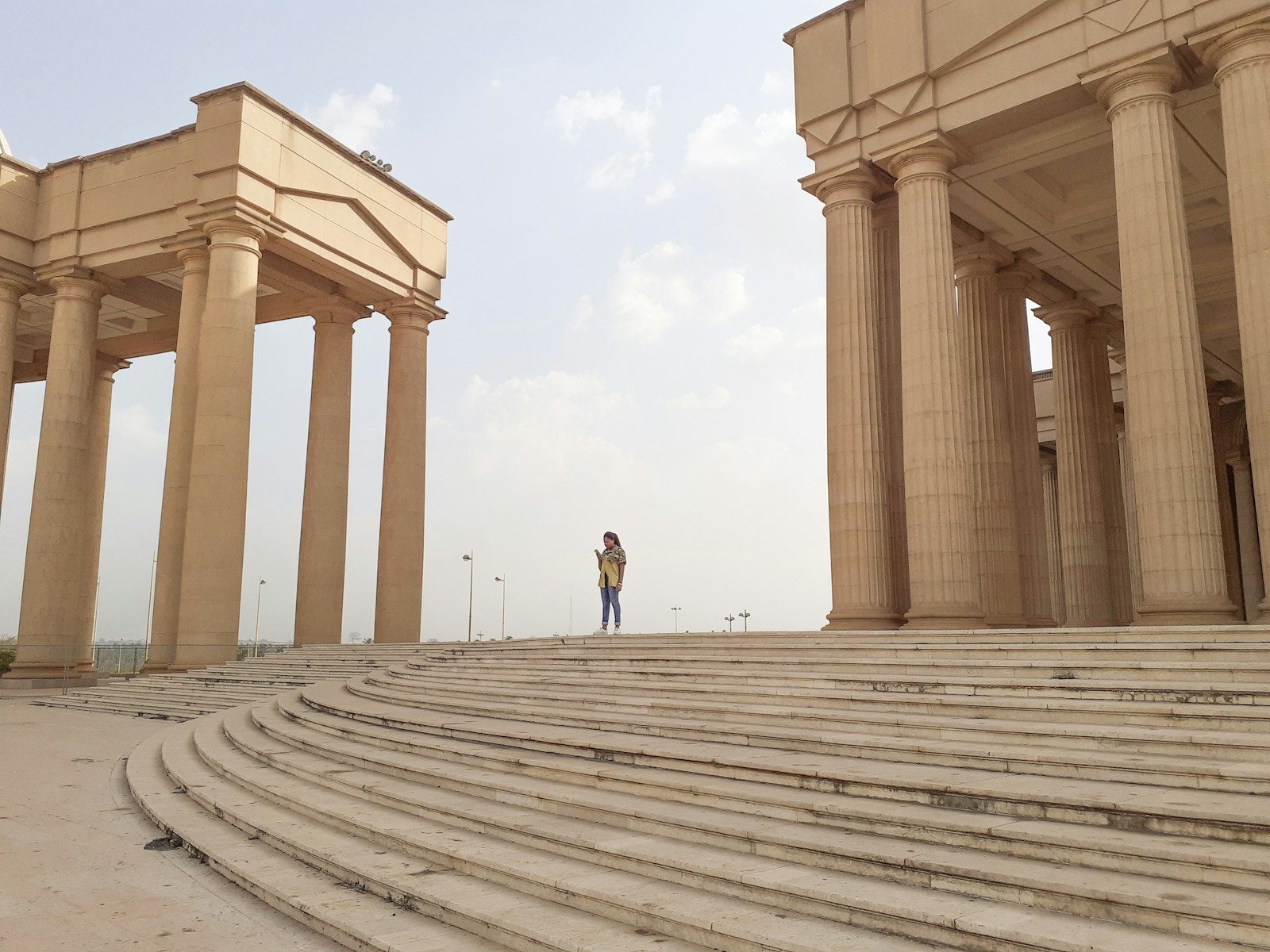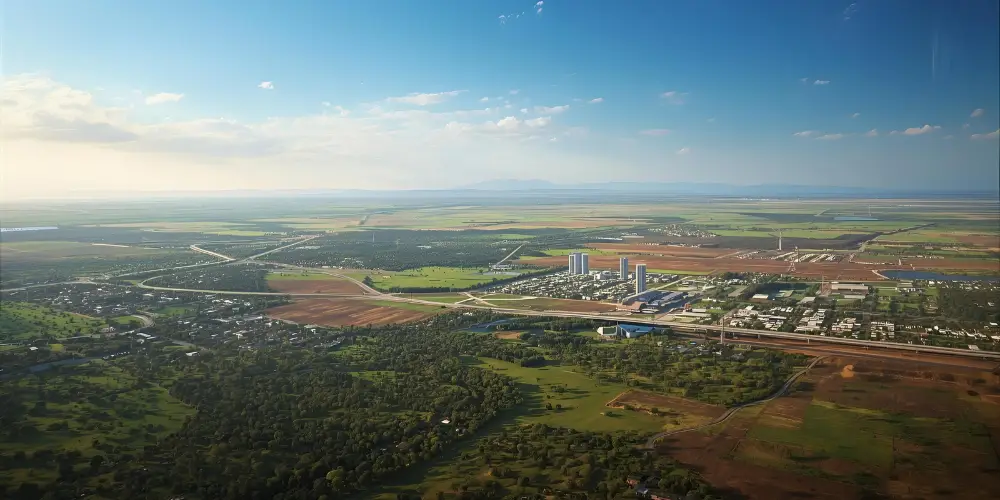China’s Military Support to Mali: Risks and Implications for Stability and Sovereignty
China’s Military Support to Mali: Risks and Implications for Stability and Sovereignty
Mali, a landlocked country in the Sahel region with a population of approximately 25 million, has grappled with persistent instability since 2012. This instability stems from terrorism, ethnic insurgencies, political upheavals, and economic challenges.
In 2012, a Tuareg rebellion erupted in northern Mali, leading to a military coup that ousted President Amadou Toumani Touré and suspended constitutional governance. Rebel factions seized key northern cities like Timbuktu, Gao, and Kidal, proclaiming an independent Islamic State of Azawad and enforcing strict Sharia law. This crisis also resulted in the destruction of invaluable cultural heritage, including 14 of Timbuktu’s 16 UNESCO-listed mausoleums.
International Response and Ongoing Challenges
Following the initial turmoil, a UN-authorized international mission intervened to reclaim northern territories within weeks. Islamist insurgents dispersed into rural and civilian areas, continuing asymmetric warfare. Despite these efforts, violence against civilians by extremist groups and militias persists. By 2023, humanitarian needs escalated, with 8.8 million Malians requiring aid and over 375,000 internally displaced, disproportionately women and children.
China’s Growing Military and Economic Role in Mali
Historically dependent on France for military support, Mali has increasingly turned to China for assistance. Between 2012 and 2013, China supplied roughly €5 million (US$5.8 million) in logistical equipment to bolster the Malian army’s mobility. In August 2013, the Chinese People’s Liberation Army donated military supplies valued at approximately 1.6 billion CFA francs (US$2.8 million), with continued support through 2023.
China’s involvement extends beyond military aid. It has made substantial investments in Mali’s mining sector—rich in gold, iron ore, lithium, and uranium reserves. Companies like Ganfeng Lithium and China National Nuclear Corporation are involved in lithium projects and uranium exploration in northern Mali.
Security Assistance: Intentions and Consequences
China’s military aid aims to strengthen Mali’s capacity to combat terrorism and insurgency. However, this support carries inherent risks:
- Supply Vulnerabilities: Heavy reliance on Chinese military supplies risks operational disruptions if China faces manufacturing or supply chain issues.
- Political Influence: China’s “no-strings-attached” policy may inadvertently bolster Mali’s military junta, hindering democratic progress and governance reforms.
- Escalation of Conflict: Focus on military solutions risks exacerbating violence, including human rights abuses, without addressing root causes like social fragmentation and governance deficits.
- Economic Dependency: Large infrastructure loans, such as the US$1.48 billion Bamako-Dakar railway project, deepen Mali’s debt burden, potentially limiting its policy autonomy through so-called “debt trap diplomacy.”
China’s Broader Engagement in Mali’s Security Sector
China’s security cooperation includes participation in the United Nations Multidimensional Integrated Stabilisation Mission in Mali (MINUSMA) since 2013, deploying personnel for infrastructure repair, medical aid, and electoral support. This engagement contrasts with traditional Western military-heavy peacekeeping, emphasizing China’s unique approach.
Debt and Economic Leverage
Mali’s debt to China, including an $11 billion loan in 2014 and $2.7 billion in 2016, alongside other infrastructure financing, significantly increases economic dependence. Critics warn this may limit Mali’s sovereign decision-making and entrench China’s geopolitical leverage in West Africa.
Risks to Mali’s Stability and Governance
The entanglement of military aid, economic investment, and political influence poses challenges:
- Governance Gaps: Without conditionalities on democratic reforms, Mali’s military junta may consolidate power unchecked.
- Fragility Amplification: Over-reliance on military aid may exacerbate insecurity and humanitarian crises.
- Geopolitical Risks: Mali’s alignment with China amidst shifting global politics may provoke regional tensions.
Recommendations for Sustainable Stability
To mitigate these risks and promote lasting peace, Mali should consider:
- Collaborating with China to ensure security assistance supports civilian-led governance and conflict resolution.
- Diversifying partnerships with international donors such as the United States, United Kingdom, and European Union.
- Implementing transparent guidelines and stakeholder consultations to evaluate foreign aid impacts.
- Engaging civil society to enhance accountability and public trust regarding security sector expenditures.
- Promoting regional economic integration and balanced global alliances to bolster resilience.
Conclusion
China’s military and economic involvement in Mali reflects broader geopolitical shifts in Africa. While it offers critical support to a fragile state battling insecurity, the potential costs—political, economic, and social—are significant. Mali’s future stability depends on carefully navigating these relationships to avoid deepened fragility and lost sovereignty.
Author: Paa Kwesi Wolseley Prah, Postdoctoral Fellow, Dublin City University
This article is republished from The Conversation under a Creative Commons license.
Recommended Further Reading
- Sahel Security Challenges (internal)
- China’s Africa Strategy (internal)
- Brookings: China in Africa (external)
- MINUSMA (Wikipedia) (external)
China’s Military Support to Mali: Risks and Implications for Stability and Sovereignty
China’s Military Support to Mali: Risks and Implications for Stability and Sovereignty
Mali, a landlocked country in the Sahel region with a population of approximately 25 million, has grappled with persistent instability since 2012. This instability stems from terrorism, ethnic insurgencies, political upheavals, and economic challenges.
In 2012, a Tuareg rebellion erupted in northern Mali, leading to a military coup that ousted President Amadou Toumani Touré and suspended constitutional governance. Rebel factions seized key northern cities like Timbuktu, Gao, and Kidal, proclaiming an independent Islamic State of Azawad and enforcing strict Sharia law. This crisis also resulted in the destruction of invaluable cultural heritage, including 14 of Timbuktu’s 16 UNESCO-listed mausoleums.
International Response and Ongoing Challenges
Following the initial turmoil, a UN-authorized international mission intervened to reclaim northern territories within weeks. Islamist insurgents dispersed into rural and civilian areas, continuing asymmetric warfare. Despite these efforts, violence against civilians by extremist groups and militias persists. By 2023, humanitarian needs escalated, with 8.8 million Malians requiring aid and over 375,000 internally displaced, disproportionately women and children.
China’s Growing Military and Economic Role in Mali
Historically dependent on France for military support, Mali has increasingly turned to China for assistance. Between 2012 and 2013, China supplied roughly €5 million (US$5.8 million) in logistical equipment to bolster the Malian army’s mobility. In August 2013, the Chinese People’s Liberation Army donated military supplies valued at approximately 1.6 billion CFA francs (US$2.8 million), with continued support through 2023.
China’s involvement extends beyond military aid. It has made substantial investments in Mali’s mining sector—rich in gold, iron ore, lithium, and uranium reserves. Companies like Ganfeng Lithium and China National Nuclear Corporation are involved in lithium projects and uranium exploration in northern Mali.
Security Assistance: Intentions and Consequences
China’s military aid aims to strengthen Mali’s capacity to combat terrorism and insurgency. However, this support carries inherent risks:
- Supply Vulnerabilities: Heavy reliance on Chinese military supplies risks operational disruptions if China faces manufacturing or supply chain issues.
- Political Influence: China’s “no-strings-attached” policy may inadvertently bolster Mali’s military junta, hindering democratic progress and governance reforms.
- Escalation of Conflict: Focus on military solutions risks exacerbating violence, including human rights abuses, without addressing root causes like social fragmentation and governance deficits.
- Economic Dependency: Large infrastructure loans, such as the US$1.48 billion Bamako-Dakar railway project, deepen Mali’s debt burden, potentially limiting its policy autonomy through so-called “debt trap diplomacy.”
China’s Broader Engagement in Mali’s Security Sector
China’s security cooperation includes participation in the United Nations Multidimensional Integrated Stabilisation Mission in Mali (MINUSMA) since 2013, deploying personnel for infrastructure repair, medical aid, and electoral support. This engagement contrasts with traditional Western military-heavy peacekeeping, emphasizing China’s unique approach.
Debt and Economic Leverage
Mali’s debt to China, including an $11 billion loan in 2014 and $2.7 billion in 2016, alongside other infrastructure financing, significantly increases economic dependence. Critics warn this may limit Mali’s sovereign decision-making and entrench China’s geopolitical leverage in West Africa.
Risks to Mali’s Stability and Governance
The entanglement of military aid, economic investment, and political influence poses challenges:
- Governance Gaps: Without conditionalities on democratic reforms, Mali’s military junta may consolidate power unchecked.
- Fragility Amplification: Over-reliance on military aid may exacerbate insecurity and humanitarian crises.
- Geopolitical Risks: Mali’s alignment with China amidst shifting global politics may provoke regional tensions.
Recommendations for Sustainable Stability
To mitigate these risks and promote lasting peace, Mali should consider:
- Collaborating with China to ensure security assistance supports civilian-led governance and conflict resolution.
- Diversifying partnerships with international donors such as the United States, United Kingdom, and European Union.
- Implementing transparent guidelines and stakeholder consultations to evaluate foreign aid impacts.
- Engaging civil society to enhance accountability and public trust regarding security sector expenditures.
- Promoting regional economic integration and balanced global alliances to bolster resilience.
Conclusion
China’s military and economic involvement in Mali reflects broader geopolitical shifts in Africa. While it offers critical support to a fragile state battling insecurity, the potential costs—political, economic, and social—are significant. Mali’s future stability depends on carefully navigating these relationships to avoid deepened fragility and lost sovereignty.
Author: Paa Kwesi Wolseley Prah, Postdoctoral Fellow, Dublin City University
This article is republished from The Conversation under a Creative Commons license.
Recommended Further Reading
- Sahel Security Challenges (internal)
- China’s Africa Strategy (internal)
- Brookings: China in Africa (external)
- MINUSMA (Wikipedia) (external)
</
Critical Analysis: China’s Military Support to Mali and Its Risks to Stability and Sovereignty
Critical Analysis: China’s Military Support to Mali and Its Risks to Stability and Sovereignty
Mali, a landlocked country in the Sahel region with a population of approximately 25 million, has grappled with persistent instability since 2012. This instability stems from terrorism, ethnic insurgencies, political upheavals, and economic challenges.
In 2012, a Tuareg rebellion erupted in northern Mali, leading to a military coup that ousted President Amadou Toumani Touré and suspended constitutional governance. Rebel factions seized key northern cities like Timbuktu, Gao, and Kidal, proclaiming an independent Islamic State of Azawad and enforcing strict Sharia law. This crisis also resulted in the destruction of invaluable cultural heritage, including 14 of Timbuktu’s 16 UNESCO-listed mausoleums.
International Response and Ongoing Challenges
Following the initial turmoil, a UN-authorized international mission intervened to reclaim northern territories within weeks. Islamist insurgents dispersed into rural and civilian areas, continuing asymmetric warfare. Despite these efforts, violence against civilians by extremist groups and militias persists. By 2023, humanitarian needs escalated, with 8.8 million Malians requiring aid and over 375,000 internally displaced, disproportionately women and children.
China’s Growing Military and Economic Role in Mali
Historically dependent on France for military support, Mali has increasingly turned to China for assistance. Between 2012 and 2013, China supplied roughly €5 million (US$5.8 million) in logistical equipment to bolster the Malian army’s mobility. In August 2013, the Chinese People’s Liberation Army donated military supplies valued at approximately 1.6 billion CFA francs (US$2.8 million), with continued support through 2023.
China’s involvement extends beyond military aid. It has made substantial investments in Mali’s mining sector—rich in gold, iron ore, lithium, and uranium reserves. Companies like Ganfeng Lithium and China National Nuclear Corporation are involved in lithium projects and uranium exploration in northern Mali.
Security Assistance: Intentions and Consequences
China’s military aid aims to strengthen Mali’s capacity to combat terrorism and insurgency. However, this support carries inherent risks:
- Supply Vulnerabilities: Heavy reliance on Chinese military supplies risks operational disruptions if China faces manufacturing or supply chain issues.
- Political Influence: China’s “no-strings-attached” policy may inadvertently bolster Mali’s military junta, hindering democratic progress and governance reforms.
- Escalation of Conflict: Focus on military solutions risks exacerbating violence, including human rights abuses, without addressing root causes like social fragmentation and governance deficits.
- Economic Dependency: Large infrastructure loans, such as the US$1.48 billion Bamako-Dakar railway project, deepen Mali’s debt burden, potentially limiting its policy autonomy through so-called “debt trap diplomacy.”
China’s Broader Engagement in Mali’s Security Sector
China’s security cooperation includes participation in the United Nations Multidimensional Integrated Stabilisation Mission in Mali (MINUSMA) since 2013, deploying personnel for infrastructure repair, medical aid, and electoral support. This engagement contrasts with traditional Western military-heavy peacekeeping, emphasizing China’s unique approach.
Debt and Economic Leverage
Mali’s debt to China, including an $11 billion loan in 2014 and $2.7 billion in 2016, alongside other infrastructure financing, significantly increases economic dependence. Critics warn this may limit Mali’s sovereign decision-making and entrench China’s geopolitical leverage in West Africa.
Risks to Mali’s Stability and Governance
The entanglement of military aid, economic investment, and political influence poses challenges:
- Governance Gaps: Without conditionalities on democratic reforms, Mali’s military junta may consolidate power unchecked.
- Fragility Amplification: Over-reliance on military aid may exacerbate insecurity and humanitarian crises.
- Geopolitical Risks: Mali’s alignment with China amidst shifting global politics may provoke regional tensions.
Recommendations for Sustainable Stability
To mitigate these risks and promote lasting peace, Mali should consider:
- Collaborating with China to ensure security assistance supports civilian-led governance and conflict resolution.
- Diversifying partnerships with international donors such as the United States, United Kingdom, and European Union.
- Implementing transparent guidelines and stakeholder consultations to evaluate foreign aid impacts.
- Engaging civil society to enhance accountability and public trust regarding security sector expenditures.
- Promoting regional economic integration and balanced global alliances to bolster resilience.
Conclusion
China’s military and economic involvement in Mali reflects broader geopolitical shifts in Africa. While it offers critical support to a fragile state battling insecurity, the potential costs—political, economic, and social—are significant. Mali’s future stability depends on carefully navigating these relationships to avoid deepened fragility and lost sovereignty.
Author: Paa Kwesi Wolseley Prah, Postdoctoral Fellow, Dublin City University
This article is republished from The Conversation under a Creative Commons license.
Recommended Further Reading
- Sahel Security Challenges (internal)
- China’s Africa Strategy (internal)
- Brookings: China in Africa (external)
- MINUSMA (Wikipedia) (external)




